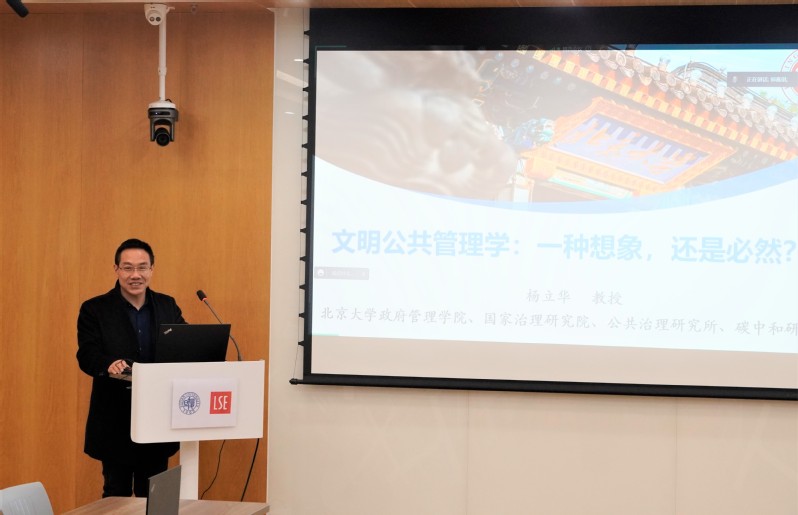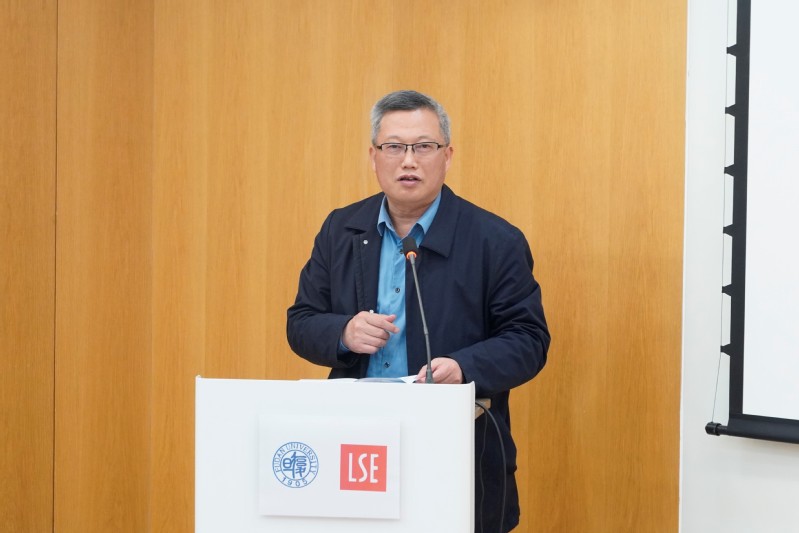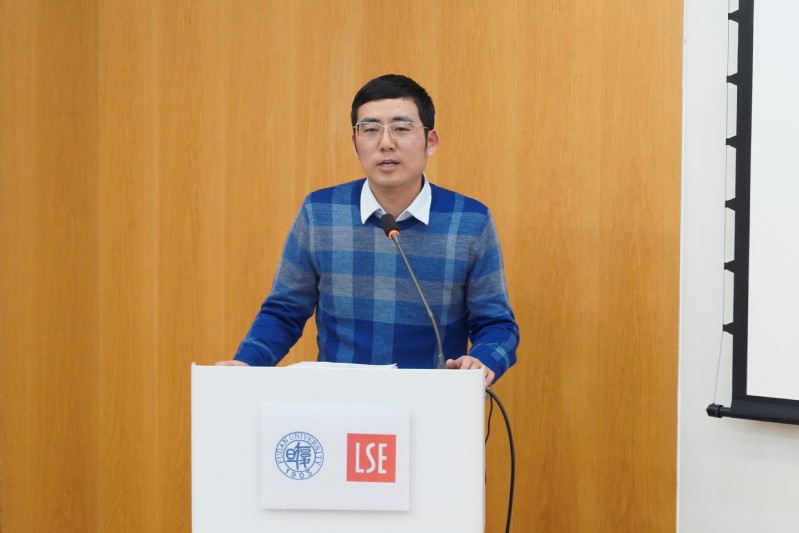Events



On March 24, 2023, the 39th lecture of the Fudan - LSE lecture series was held in the conference room on 8th Floor, West Sub-Building of Guanghua Towers and live-streamed online. Professor Lihua Yang from the School of Government of Peking University lectured on “Civilizational Public Administration: An Imagination or A Necessity?”. The lecture was hosted by Professor Yijia Jing, Dean of the Institute for Global Public Policy, Fudan University. Professor Yalin Tang and Associate Professor Ping Zhang from the School of International Relations and Public Affairs, Fudan University served as discussants. The lecture attracted nearly 100 students and teachers from Fudan University and other universities in China and abroad.

Professor Lihua Yang began his lecture with the question, “What kind of public administration is needed in the era of globalization?” He discussed the Report of the 20th National Congress of the CPC and the civilization of politics and public administration, the influencing factors and research paradigms of politics and public administration, the necessity, the essential contents and characteristics of civilizational politics and public administration.This lecture is provided an in-depth discussion of the research methods and main tasks of civilizational politics and public administration.

Professor Yang believed that a new form of human advancement, as one of the nine essential requirements for the Chinese path to modernization, includes a new form of human political and public administration civilization. Professor Yang detailed the content and limitations of the three presuppositions of Western scientism and contrasts the study of political culture with cultural politics, pointing out the necessity for civilizational politics and public administration. Professor Yang distinguished civilizational politics and public administration from Western politics and public administration, existing politics and public administration studies of elements of culture or civilization, and existing dominant Western views of culture and civilization, demonstrating the basic features of civilizational politics and public administration. In terms of research methods, Professor Yang considered that the study of civilizational politics and public administration requires special attention to the elements of culture and civilization and the adoption of normative, empirical (which includes qualitative, quantitative and a mixture of both) or mixed normative and empirical research methods. Finally, Professor Yang shared his views on the future research mission and direction of civilizational politics and public administration and had a discussion with the audience.


After Professor Yang’s lecture, Professor Yalin Tang and Associate Professor Ping Zhang gave their comments in turn. Professor Tang considered that the content of the speech was a combination of global vision andhumanistic care, which resonated with the audience. Associate Professor Ping Zhang commented that Professor Yang’s study provided a novel and original theoretical framework, reflecting the development of the public administration knowledge system and inspiring young scholars to further research and exploration. Both professors had in-depth and informative discussions with Professor Yang.
In the end, Professor Yijia Jing, on behalf of the Institute for Global Public Policy, expressed his gratitude to Professor Lihua Yang for his excellent lecture and looked forward to his future visits to Fudan.